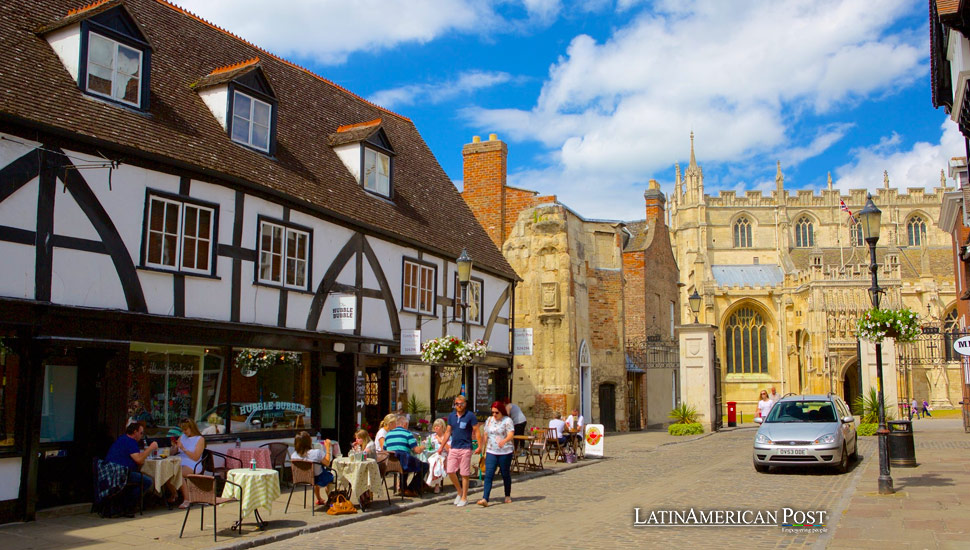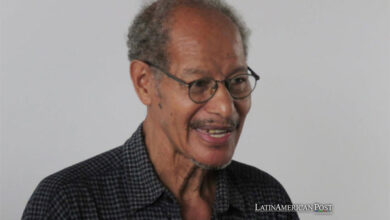Barbados Unveiling Slavery’s Legacy in Gloucester

Embarking on a quest to unearth the echoes of Barbadian history, a project rooted in Gloucester delves into the depths of slavery’s legacy, propelled by a rare Caribbean manuscript.
Nestled within the heart of Gloucester, a profound exploration into the enduring legacy of slavery is underway, fueled by the acquisition of a rare manuscript from the shores of Barbados. This project, aptly named “Beating Back The Past,” has garnered attention and funding from Arts Council England, propelling it into the limelight as it endeavors to unravel the hidden narratives of human suffering and resilience.
Unveiling the Oldest Sheet Music
At its core lies a manuscript of unparalleled significance — the world’s oldest surviving sheet music from the sugar plantations of Barbados. Within its fragile pages lie the voices of enslaved individuals, their stories and struggles immortalized in ink. Transported to Gloucestershire Archives in the 1970s, this invaluable document found its place among the revered listings of the UNESCO Memory of the World register in 2017, a testament to its historical significance.
Leading the charge in this poignant endeavor are Rider Shafique, a Gloucestershire musician with Barbadian roots, and Vanley Burke, affectionately known as the godfather of black British photography. United by their shared heritage and a desire to shed light on the transatlantic slave trade, they aim to offer a unique perspective, drawing from their ancestral connections to Barbados.
In a candid dialogue with the BBC, Mr. Burke reflected on the profound impact of encountering the manuscript, noting its resonance within the community. Collaborating with Mr. Shafique, their shared mission is to present glimpses of the trauma of slavery through a multifaceted display encompassing textiles, photographs, and music.
“This trauma resonates through the community – and it’s a huge topic,” Mr. Burke emphasized, underscoring the weight of their undertaking. He stressed the importance of showcasing the manuscript and other archival materials, often overlooked yet holding profound significance in unraveling the complexities of history.
Amplifying Voices
The project extends its reach beyond the confines of Gloucester, weaving together narratives from diverse voices. Contributions from Voices Gloucester and four other stitching groups enrich the tapestry of stories, further amplifying the project’s impact.
Scheduled for display at Gloucester Cathedral from September 6 to 30, the project promises to captivate audiences with its immersive portrayal of history. Against the backdrop of this historic venue, visitors will be transported through time, confronting the stark realities of slavery while bearing witness to the resilience of the human spirit.
The significance of this endeavor is not lost on the Arts Council, whose generous funding of £29,750 underscores the importance of preserving cultural heritage. Phil Gibby, Area Director, South West, Arts Council England, emphasized the role of cultural artifacts as time capsules, guiding us through the corridors of history and shaping our collective consciousness.
“Cultural artifacts such as this rare manuscript serve as time capsules. They help us make meaning of the past, interpret the present, and shape our collective future,” Gibby remarked, highlighting the transformative power of art and history in shaping our understanding of the world.
Confronting Legacy
For Councillor Lynden Stowe, cabinet member at Gloucestershire County Council, the project represents an opportunity to confront the enduring legacy of slavery. “This project will provide an opportunity for audiences to consider the impact of slavery historically and today,” Stowe affirmed, recognizing the importance of fostering dialogue and reflection on a topic that continues reverberating through the annals of time.
Also read: Colombia’s Journey to Peace through “There Is a Future If There Is Truth” Exhibition
As the curtains rise on this groundbreaking project, it beckons us to confront the shadows of our history to acknowledge the pain and resilience woven into the fabric of history. Through art, music, and storytelling, “Beating Back The Past” invites us on a journey of remembrance and reckoning, urging us to confront the complexities of our shared humanity.



